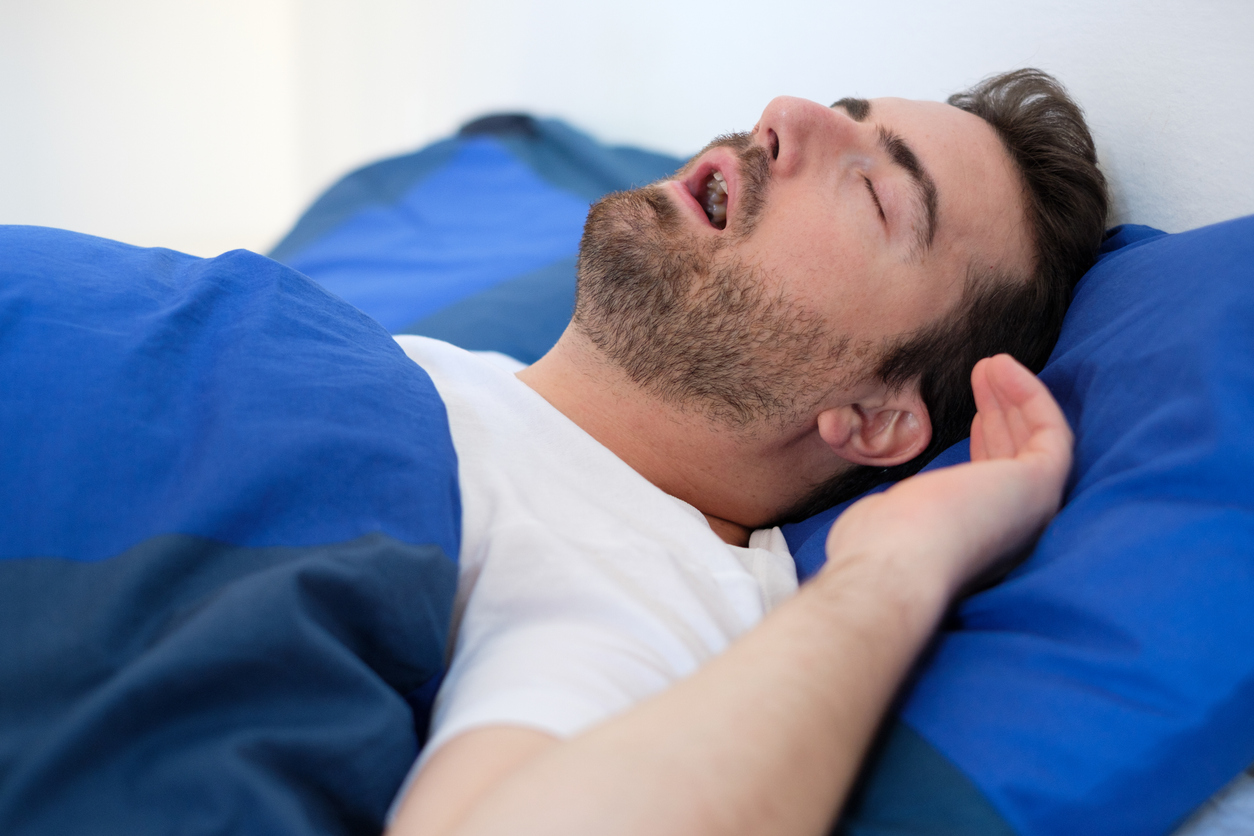How Mouth Breathing at Night Affects Your Teeth?

We all know how it feels like to have nasal congestion with a stuffy nose due to a bad cold or allergies. When you have a stuffed nose, you have no choice but to breathe through your mouth. And this makes sense. Also, it makes sense when you breathe through your mouth and nose during and after strenuous physical activity or sports. The extra breath intake helps your body to get more oxygen to the overworked muscles.
Nonetheless, breathing through the mouth as a habit has many negative effects on your oral and overall health. It is especially true if the habit begins in childhood. Here are some of the negative effects of mouth-breathing, especially how it affects your mouth and teeth at night.
– Dry Mouth and Lips
Mouth breathing causes loss of fluid through evaporation, thus resulting in a dry mouth and lips. Therefore, this can lead to serious consequences such as a decrease in the protective function of saliva and impaired swallowing. Also, it can be quite uncomfortable.
– Bad Breath/Halitosis
Bad breath is a condition that results from an altered halitus. It is unpleasant for the affected person and those around them. Breathing through the mouth is linked to halitosis because the less amount of saliva tampers with the mouth’s ability to self-clean, thereby resulting in an increased number of bacteria. Additionally, saliva neutralises the acidity level in the mouth. Therefore, with a lack of saliva, the acid produced by the bacteria is neutralised lead to dental cavities.
– Alteration in Facial Structure
Mouth breathing can cause the facial bones to develop differently, thereby yielding drooping eyes, flat features, gummy smiles, a small chin, dental malocclusion, overcrowded teeth, poor posture, a narrow jaw,and dental arch. Additionally, most mouth breathers do not enjoy a good night’s sleep. And poor sleep can lead to poor concentration, sleep disorders,and poor academic performance.
– Need for Orthodontic Treatment
Open mouth breathing can lead to a narrowed dental arch which,as a result, does not allow sufficient room for the natural development and spacing of a full set of permanent teeth. When this happens, you may need extensive orthodontic treatment to fix the problem.
– Tooth Decay
Saliva has numerous functions such as protecting the enamel, cleaning your mouth and clearing any unwanted acids. When your mouth contains less saliva because of breathing through the mouth, the pH level is lowered, thus increasing the numbers of harmful bacteria. Consequently, this greatly increases the risk of tooth decay which can possibly lead to tooth loss.
– Wear Down of Teeth
Saliva lubricates between teeth and gums. The lubricating property of saliva prevents teeth from wearing down while eating and teeth grinding at night. For a mouth breather to breathe properly, he/she needs to move the jaw forward during sleep,thus resulting in more wear of the teeth.
Bottom Line
Our dental staff at the Springvale Dental Clinic are trained to look for any signs and symptoms of mouth breathing,and in most cases, we are the first to identify a potential problem. Therefore, this makes routine visits to the dentist even more important. If you are a mouth breather, contact or visit us today, we will determine the causes of it and fix it to prevent any future problems.



